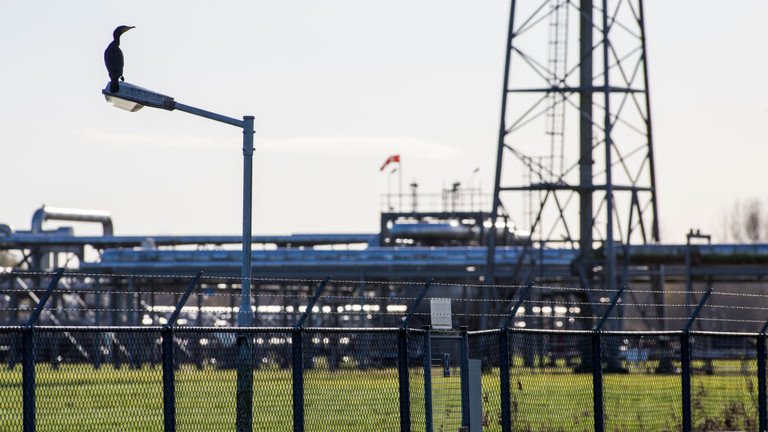The Dutch government has halted drilling in Groningen over earthquake fears
The Netherlands officially shut down the Groningen gas field on Friday after the authorities approved a permanent halt to drilling operations at the site to limit seismic risks in the northern region.
Since October 2023, the gas field has been producing only a fraction of its full capacity following years of production cuts aimed at reducing the risk of earthquakes that the process causes in the region, which have damaged thousands of buildings over the years. However, its 11 wells remain open in case of a severe winter and due to the uncertain international situation with regard to the Russia-Ukraine conflict.
Earlier this week, the Dutch Senate approved a law to close the gas field for good after the government pledged that production would never be resumed in order to limit seismic risks in the region.
Senators had originally planned to pass the law two weeks ago, but postponed the final vote after several parties raised concerns over the country’s supply.
That move angered both the government and local officials in the northern province. Mining Minister Hans Vijlbrief, who advocated the shutdown, said he would resign if it led to a long delay and further uncertainty regarding the risk of earthquakes for people living in the region. The Groningen authorities accused the parliament of backtracking on its promise to end gas drilling.
Opened in 1963, Europe’s largest gas field became a major contributor to the Dutch economy, and still has huge reserves of gas. It produced more than 50 billion cubic meters of gas at its peak ten years ago. However, the region has recorded over 1,600 earthquakes since 1986 which have damaged 85,000 buildings. It is not clear whether the halt to production is enough to prevent seismic activity in the region, as empty cavities remain underground.
In February, Shell and Exxon joint venture NAM, which operates the Groningen field, asked an arbitration court to decide whether the government should provide compensation for shutting down gas production at the site.
According to Reuters, gas profits have delivered €363 billion ($385 billion) to the Netherlands since production was launched, while Shell and Exxon’s profits from Groningen amounted to nearly €66 billion over the same period.
Prior to the launch of Moscow’s military operation against Ukraine, a quarter of the Netherlands’ gas imports were sourced from Russia, according to country’s statistics agency. In 2023, the share of Russian natural gas accounted for less than 9% of the country’s imports. Meanwhile, liquified natural gas from the US increased and accounted for two-thirds of the country’s gas imports last year.
Source: RT



